Leaving home means leaving nearly everything and everyone you know behind, including your community, leading to isolation and hopelessness. When people arrive at displacement camps, finding rewarding roles within their new community can help them regain a sense of normalcy and purpose.
In a camp in northeast Syria, residents can take on leadership roles to support their neighbors and create new connections. Our community mobilization team, part of the Camp Coordination and Camp Management program, collaborated with the camp administration to set up opportunities for people to engage, contribute, and have their voices heard. Men and women are elected to fulfill leadership positions for communal spaces and “blocks” within the camp. We provide training so the leaders are aware of their rights and can share that information with others while building a connection to a place and to people where none had been.
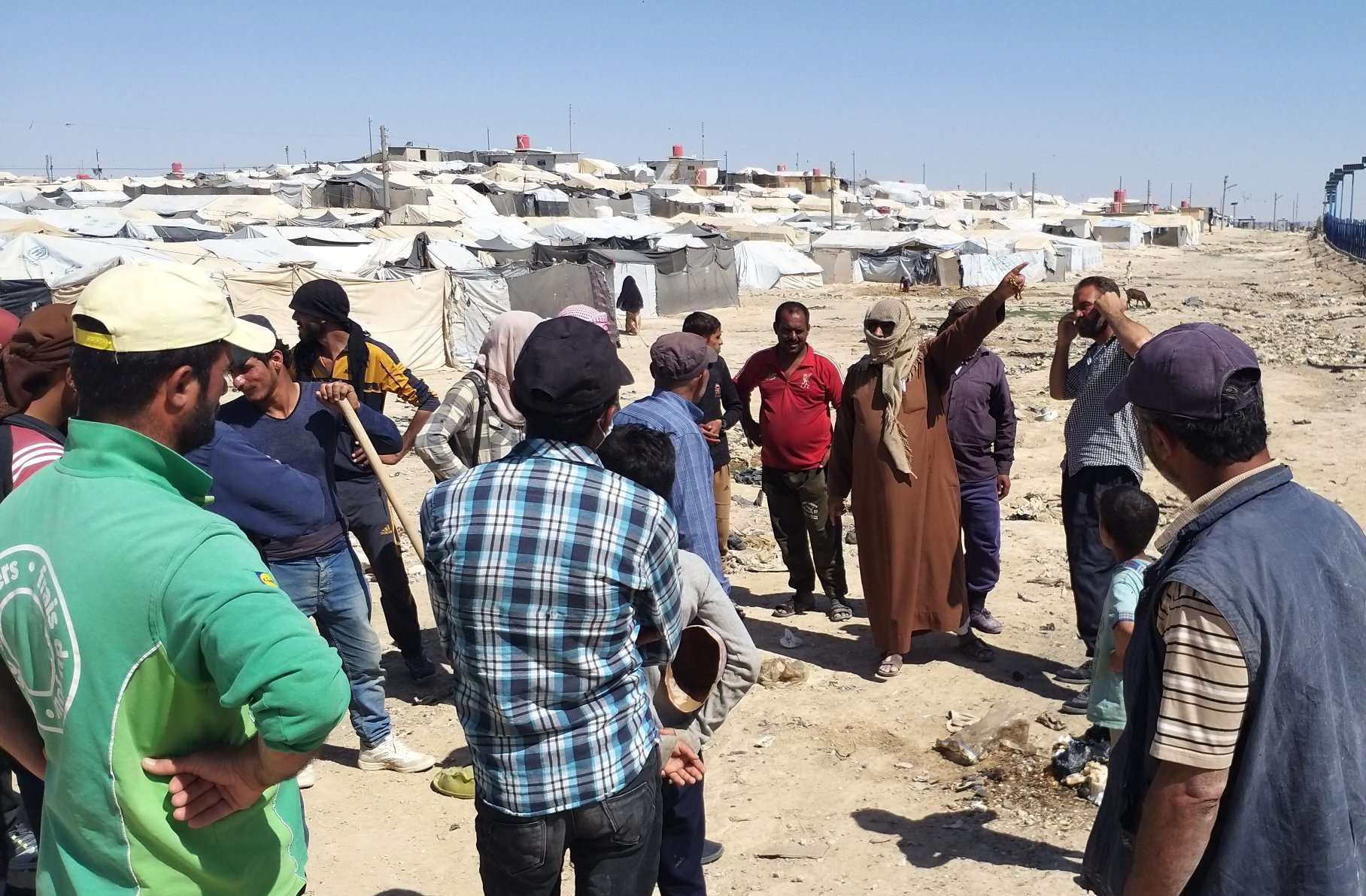
Community leaders work with each other and our team to address humanitarian response gaps in the camp.
Saeed is a block leader who is known for his problem-solving skills. Having lived through conflict and displacement himself, he was inspired to help others navigate hardship. With guidance and support from Blumont, he supervises food and water distribution, reports issues, and raises awareness on different topics of interest and importance to the community.
“This role makes me happy because it gives me the opportunity to serve the camp’s residents, help them, and alleviate their suffering,” Saeed said. In Blumont trainings, he learned about effective emergency preparedness, humanitarian law and protection principles, and community management, equipping him to be a better advocate for his neighbors.
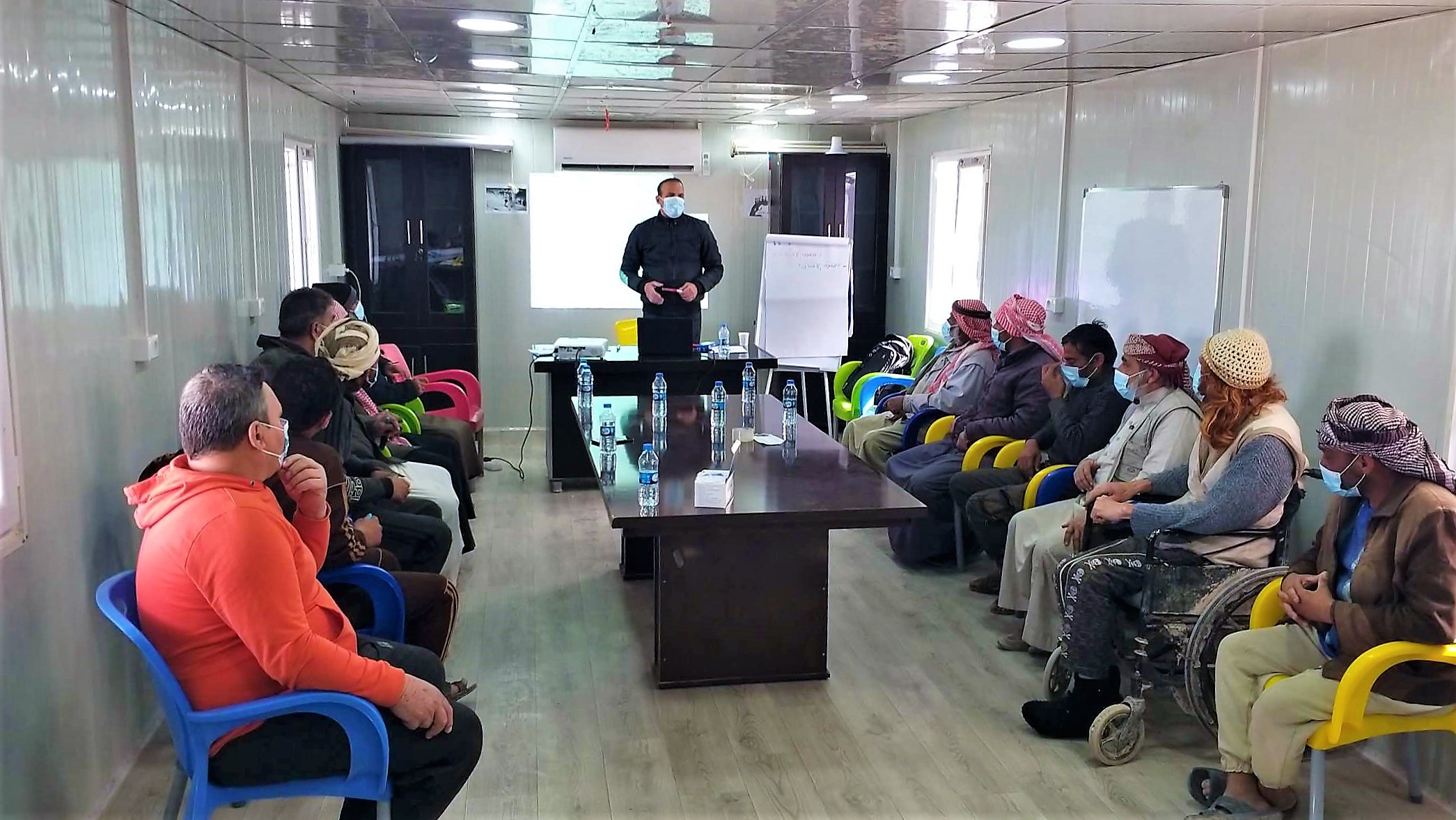
Training sessions contribute to developing leaders’ knowledge in a variety of topics, such as protection, risk awareness, leadership skills, and gender-based violence.
Amira is another community leader who was appointed by her neighbors. She has always had a passion for helping others, but found it difficult to help while she herself is displaced. Now, in the camp, she leads a community kitchen, using her innate people skills to build better relationships among her neighbors. Amira coordinates maintenance activities, oversees the distribution of cooking supplies, and supports other women. Training taught her how to identify and respond to harassment and gender-based violence so she can look out for her peers.
Amira feels proud of her leadership role and sees it as a way to compensate for the education she missed out on when she was younger. “It makes me happy to be able to solve the problems of the women in the community,” she said.
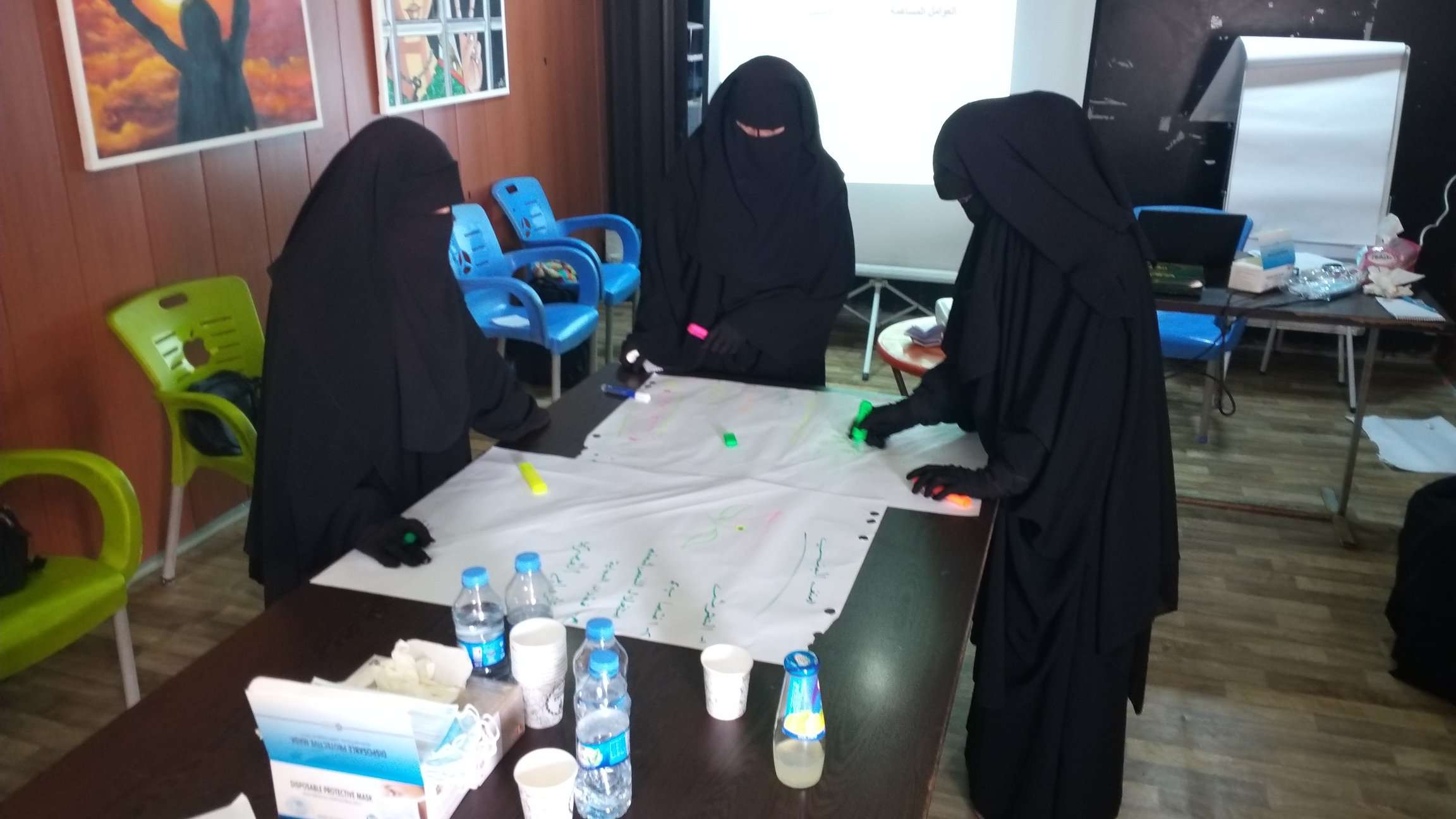
Community leaders hold discussions and workshops with their neighbors on important topics such as health, education, and inclusivity, working with camp administration.
Community leaders also aspire to give kids a chance to have a childhood despite the harsh realities of displacement. Haythm, the head of the camp’s Sports Committee, works with youth to help them create moments of joy and build relationships with other children, one soccer match at a time.
He not only organizes tournaments and secures sports equipment, but also acts as a mediator and role model young people can trust. “This role brought me stability, improved my capability of coexisting with other people in the camp, and helped me establish relations with other Syrians and Iraqis,” he said.
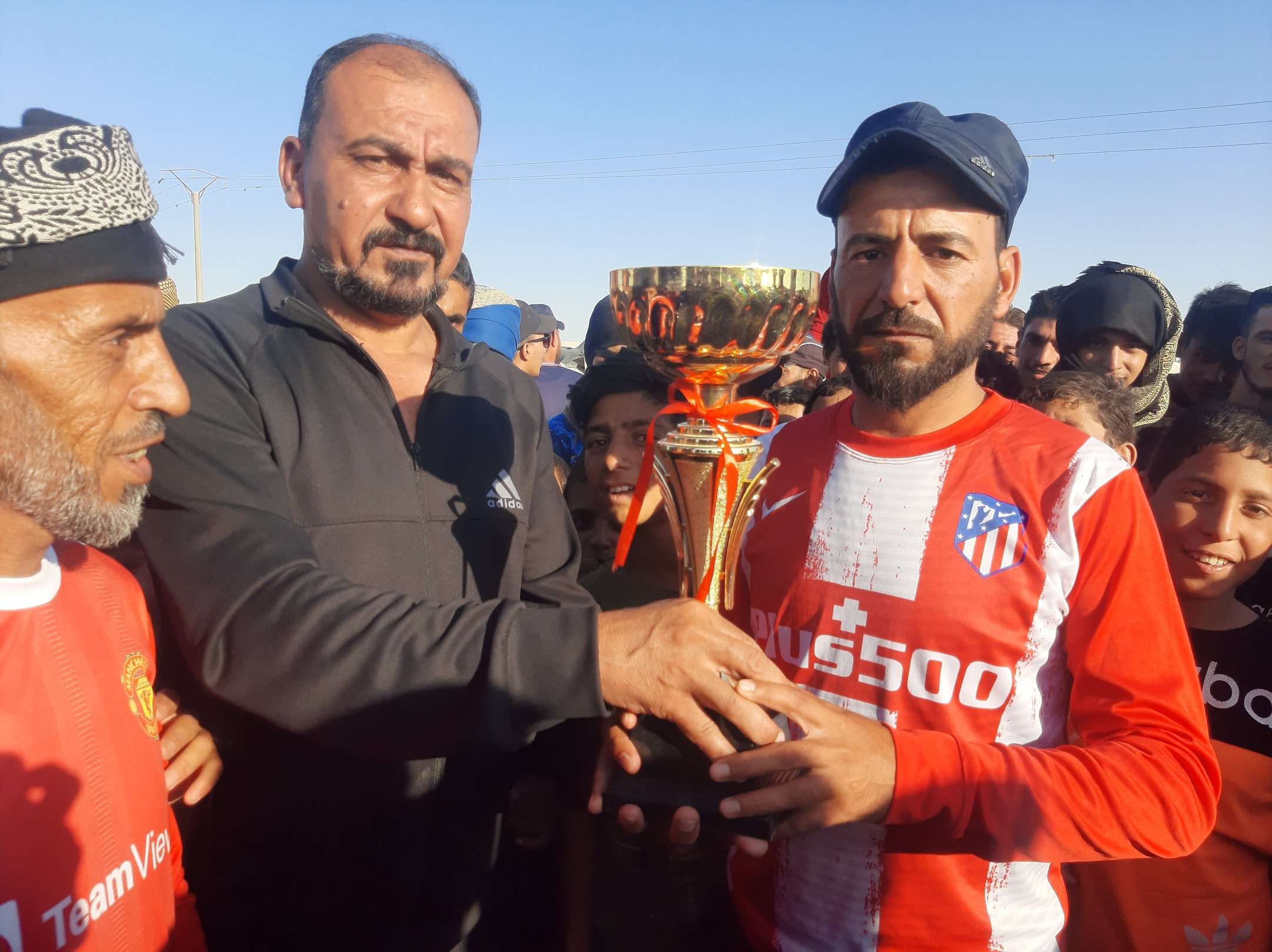
Haythm (center), the head of the Sports Committee, helps kids in the camp develop their skills and experience moments of joy and happiness through sports.
In the face of adversity, people like Haythm, Amira, Saeed, and other leaders are making a difference and helping their communities grow stronger. They all share an ambition to do good, which Haythm put into words: “I am proud of this leadership role, of planting smiles and joy in people’s souls.”
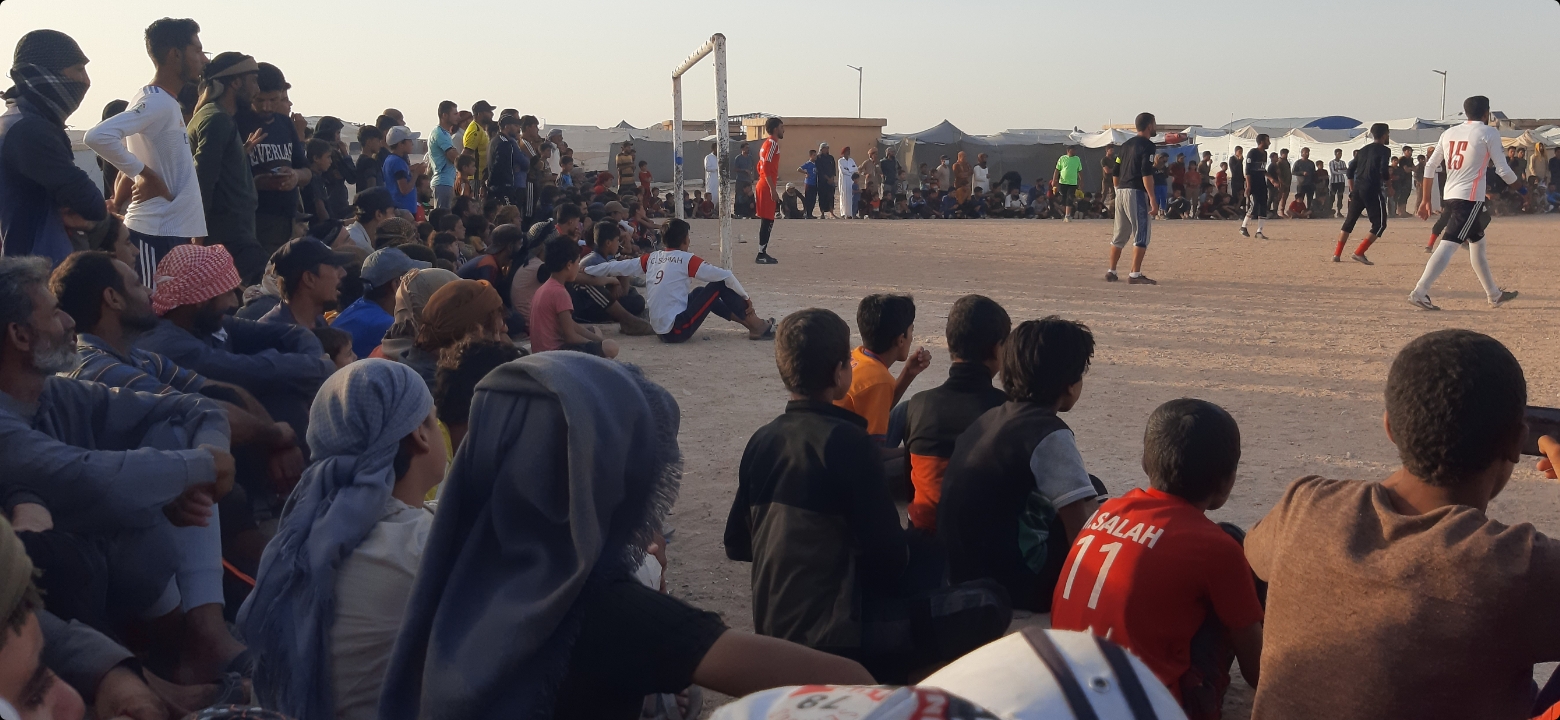
People of all ages cheered on their neighbors in a soccer tournament that Haythm organized in the camp.



